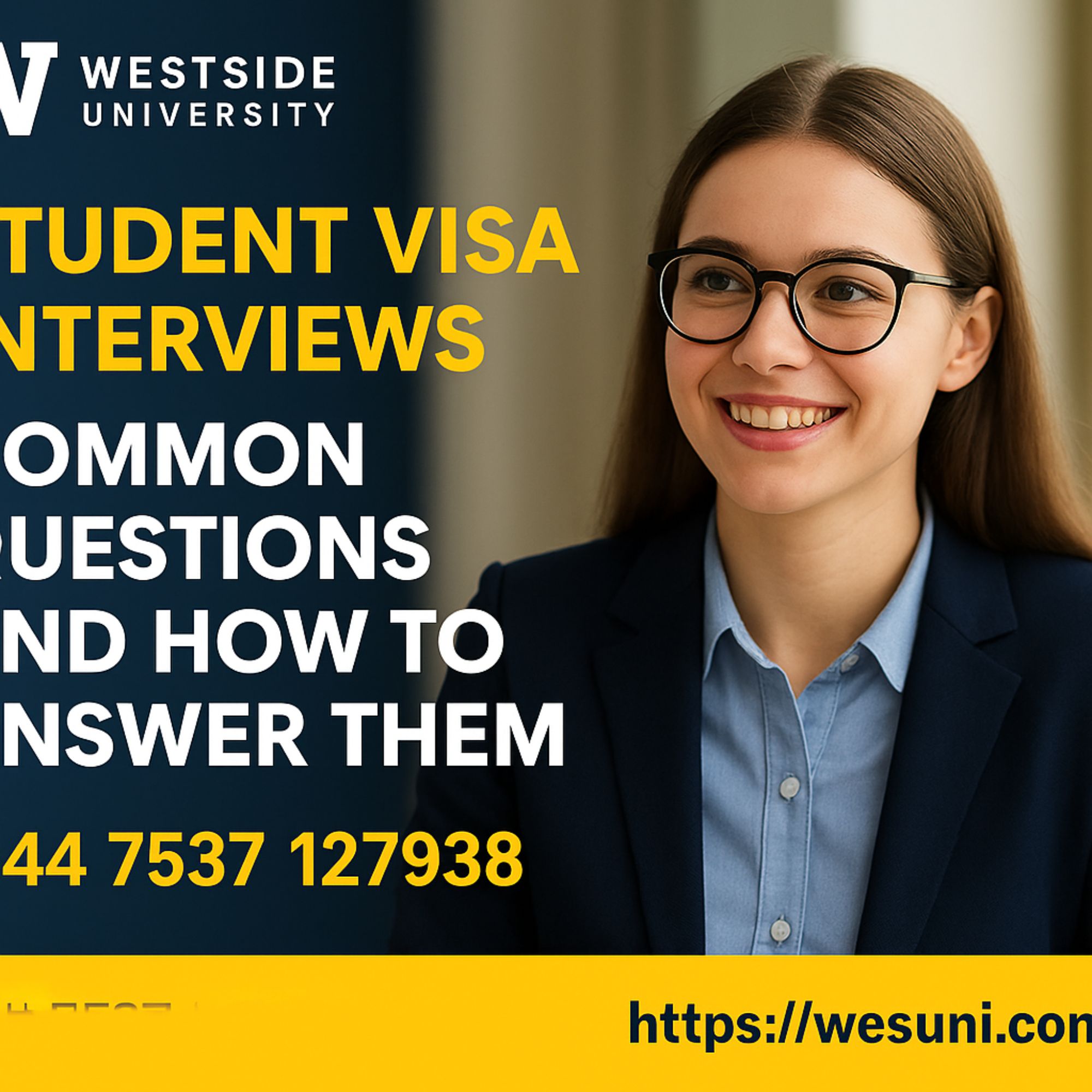For many international students, one of the most important steps in the study abroad journey is the student visa interview. While the paperwork and application process may feel daunting, the visa interview itself can often seem intimidating. After all, this face-to-face meeting determines whether you’ll be granted permission to pursue your dream of studying in another country.
The good news is that with the right preparation, you can walk into your visa interview with confidence. In this guide, we’ll explore the most common student visa interview questions, explain why consular officers ask them, and provide strategies for crafting strong, convincing answers.
Why Student Visa Interviews Are Important
The visa interview serves as more than just a formality. Immigration officers use this opportunity to assess:
- Your genuine intent: Are you truly planning to study, or are you using education as a way to immigrate?
- Your financial readiness: Can you afford tuition, living costs, and other expenses while abroad?
- Your preparation: Do you understand your program, university, and how it fits your career goals?
- Your ties to home country: Will you return after graduation or abide by visa rules?
Understanding these objectives is key to tailoring your answers effectively.
Common Student Visa Interview Questions and How to Answer Them
1. Why do you want to study in [country]?
This is one of the first questions you’ll encounter. Interviewers want to confirm that you have a clear academic purpose, not just a desire to move abroad.
✅ How to answer:
- Highlight the country’s strengths in education, such as reputation in your field.
- Mention cultural exposure, networking opportunities, or research facilities.
- Keep the focus on academics, not lifestyle alone.
Example:
“I chose Canada because it has globally recognized universities for computer science and a strong emphasis on research and innovation. The post-study opportunities also align with my long-term career goals in technology.”
2. Why did you choose this particular university?
The officer wants to ensure you’ve done your research and aren’t applying randomly.
✅ How to answer:
- Mention specific programs, professors, or facilities.
- Show that you compared other universities before making your choice.
Example:
“I chose XYZ University because of its strong business program and the internship opportunities offered through its partnerships with leading global companies. I also reviewed other universities, but XYZ stood out for its career support services.”
3. What course are you planning to study, and why?
They want to see if your course selection matches your academic background and career aspirations.
✅ How to answer:
- Be clear and specific about your chosen field.
- Explain how it fits into your career plan.
Example:
“I will be pursuing a Master’s in Public Health. I have a background in biology and volunteered at healthcare organizations in my home country. This program will help me develop the expertise to improve public health systems back home.”
4. How will you fund your studies?
Finances are a crucial part of the visa process. Officers want reassurance that you won’t face financial difficulties abroad.
✅ How to answer:
- Provide evidence: scholarships, bank statements, parental sponsorship, or loans.
- Be honest and specific about the sources of your funds.
Example:
“My education will be funded by a scholarship I received from my university, along with savings from my parents. We have provided all necessary bank statements as proof of funds.”
5. Do you have any relatives in this country?
They ask this to gauge your personal connections abroad and to assess potential immigration risks.
✅ How to answer:
- Answer honestly.
- If you have relatives, clarify the relationship and whether they’ll be supporting you.
6. What are your plans after graduation?
This question helps officers determine whether you’ll return home or plan to immigrate.
✅ How to answer:
- Emphasize career goals that tie back to your home country.
- Avoid saying you want to stay permanently (unless your visa type allows it).
Example:
“After completing my Master’s, I plan to return to my home country and join the Ministry of Education to help improve teaching programs. The skills I gain abroad will be valuable in creating new educational policies.”
7. Why not study this course in your home country?
The interviewer wants to test the necessity of studying abroad.
✅ How to answer:
- Show gaps in your home country’s education system compared to abroad.
- Emphasize international exposure, specialized programs, or career opportunities.
Example:
“My home country does not offer advanced courses in renewable energy. Studying in Germany will allow me to learn from one of the leading countries in sustainable technology.”
8. What will you do if your visa is rejected?
This is a test of your determination and backup planning.
✅ How to answer:
- Show resilience and commitment to your education.
- Mention reapplying or exploring other countries, but stay calm and polite.
Example:
“If my visa were rejected, I would carefully review the reasons, address them, and reapply. My goal remains the same: to study and specialize in this field.”
9. Do you plan to work while studying?
This is to ensure you understand visa work restrictions.
✅ How to answer:
- Be clear that your main goal is education.
- Mention work only as permitted by visa rules.
Example:
“My primary focus will be on my studies, but if allowed under my visa, I may work part-time to gain practical experience and help cover living expenses.”
Tips for a Successful Visa Interview
- Dress Professionally: First impressions matter.
- Practice, Don’t Memorize: Be natural—don’t sound robotic.
- Carry All Documents: Financial statements, admission letters, and transcripts should be ready.
- Stay Calm and Confident: Even tricky questions can be answered politely.
- Be Honest: Any inconsistency can harm your chances.
Final Thoughts
Student visa interviews are not designed to intimidate you but to ensure that genuine students have the opportunity to study abroad. By preparing thoroughly for common questions, organizing your documents, and presenting yourself with confidence, you’ll significantly improve your chances of success.
Remember: every question is an opportunity to show your commitment to your studies and your readiness to represent yourself as a responsible international student.


